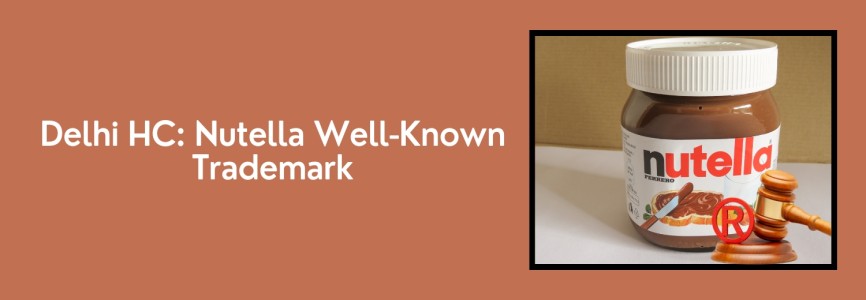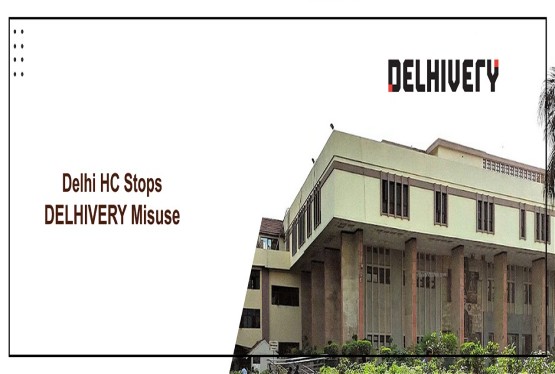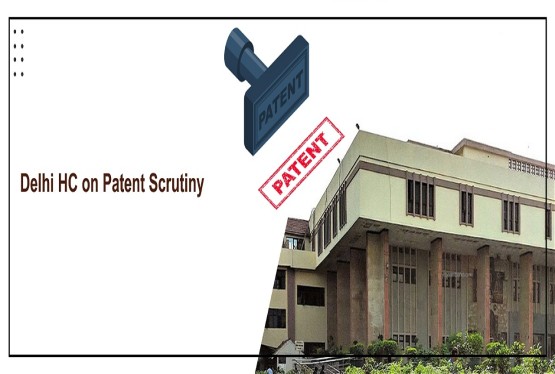On 28th July 2025 in a Prominent verdict of the Delhi High court that Reinforces the protection of global brands in India, the Delhi High Court has officially recognised Nutella as a "well-known trademark", reinforcing the importance of intellectual property rights and consumer safety. The judgment was delivered in favour of Ferrero SpA, the Italian confectionery giant behind the iconic hazelnut cocoa spread, Nutella.
This development comes as part of a trademark infringement case filed by Ferrero against a Thane-based company, M.B. Enterprises, which was accused of manufacturing and distributing fake Nutella products using identical branding and packaging posing a serious threat to public health and misleading unsuspecting consumers.
Background of the Case
Ferrero, is a company with a global presence in more than 50 countries, has been selling Nutella since 1964 and entered the Indian market in 2009. The ‘NUTELLA’ trademark has been officially registered since 1975. The dispute began when Ferrero received a letter from the US Food and Drug Administration (FDA) in 2021, following a raid by the Maharashtra Food and Drug Administration (FDA). The raid uncovered:
-
Nearly 10 lakh counterfeit Nutella jars
-
Approximately 4 lakh fake labels and packaging items
-
The products were stored in extremely unhygienic conditions
These counterfeit products were traced back to M.B. Enterprises, and further investigations revealed that the company had been illegally copying Ferrero’s Nutella brand, including its distinctive trade dress, font, label design, colour scheme, and overall packaging.
Ferrero, through its legal counsel, argued that this was a blatant violation of trademark rights, done with dishonest intent to unfairly profit from Nutella’s reputation. The company sought damages, a permanent injunction, and recognition of ‘Nutella’ as a well-known trademark in India.
The Court’s Observations and Reasoning
Justice Saurabh Banerjee, who delivered the judgment, did not hold back in condemning the actions of the defendant. Calling the act “shocking” and “mala fide”, the Court said that M.B. Enterprises was clearly attempting to ride on the goodwill and global reputation of Nutella by copying its packaging and selling counterfeit goods.
The judge raised strong concerns about public health, especially since the fake Nutella jars were found to be edible items stored in unsanitary conditions. He pointed out that food products consumed by the general public particularly children require a higher degree of judicial caution.
Relevant Sections and Cases
Considering the circumstances and evidence presented, the Court found adequate reason to formally recognise ‘NUTELLA’ as a well-known trademark in accordance with Section 2(zg) of the Trade Marks Act, 1999, leaving no room for doubt regarding its widespread reputation and consumer association.
To support its reasoning, the Delhi High Court referred to two landmark cases that highlight the importance of applying stricter standards in trademark disputes involving products that impact public health. The first was Cadila Healthcare Ltd. v. Cadila Pharmaceuticals (2001), where the Supreme Court of India stressed the need for heightened scrutiny in trademark cases concerning medical and health-related goods. The second was Dominos IP Holder v. MS Domnick Pizza (2022), in which the Delhi High Court ruled that an elevated level of care is required when food-related trademarks are infringed, given the potential risks to public safety. Justice Saurabh Banerjee further observed that the defendant’s complete non-cooperation by failing to file a response, appear in court, or engage with the proceedings reflected a “suspicious silence” and further indicated their mala fide intent. This absence of participation reinforced the Court’s conclusion that the defendant’s actions were dishonest and unlawful.
Observation of the Court
The Delhi High Court delivered a clear and firm judgment in favour of Ferrero SpA, the maker of Nutella, granting strong legal relief in the trademark infringement case. The Court issued a permanent injunction against M.B. Enterprises, effectively barring the company from manufacturing, packaging, selling, or advertising any counterfeit Nutella products. This move was aimed at preventing further misuse of the Nutella brand and protecting consumers from deceptive and potentially harmful imitations. In addition to this, the Court awarded Rs.30 lakh in damages to Ferrero for the harm caused to its brand reputation and commercial interests, along with Rs.2 lakh in legal costs to cover litigation expenses. Significantly, the Court also formally declared that ‘Nutella’ is a well-known trademark in India, recognising its wide public recognition, global reputation, and strong consumer association. This declaration offers Ferrero broader protection under Indian trademark law, making it easier to act against future infringements even beyond similar product categories.
Justice Banerjee confirmed that Nutella had already been recognised as a well-known trademark internationally, including by the World Intellectual Property Organization (WIPO) and the International Trademark Association (INTA). He further observed that:
“The name ‘Nutella’ has become synonymous with a thick creamy hazelnut cocoa spread, and there is no shadow of doubt that the plaintiffs are globally established and not fly-by-night operators.”
Legal Impact
This ruling strengthens the legal framework for brand protection in India, especially for foreign companies operating in the Indian market. By recognising ‘Nutella’ as a well-known trademark, the Delhi High Court has ensured that Ferrero can now take swift legal action against other infringers without having to prove reputation in each case.
This is not the first time Ferrero has won a trademark battle in India. In Ferrero SpA & NR v M/S Rochi International (2018), the company successfully defended the Ferrero Rocher trade dress and was awarded Rs.10 lakh in damages.
Conclusion
This landmark ruling by the Delhi High Court is a strong message against counterfeiters and trademark violators, especially in the food industry, where public health is at stake. By declaring Nutella a well-known trademark in India, the Court has not only protected Ferrero’s intellectual property, but also taken a significant step toward ensuring consumer safety and brand integrity in the Indian marketplace.
Frequently Asked Questions (FAQs)
Q1. What was the Nutella trademark case about?
Ans. The case was filed by Ferrero SpA against an Indian company, M.B. Enterprises, for manufacturing and selling counterfeit Nutella products that copied its name, packaging, and design. The counterfeit goods were found during a raid in Maharashtra and were stored in unhygienic conditions, raising health and safety concerns.
Q2. Who filed the case and in which court?
Ans. The case was filed by Ferrero SpA, the Italian parent company of Nutella, in the Delhi High Court.
Q3. What is a ‘well-known trademark’?
Ans. A well-known trademark is a mark that is widely recognized by the general public and enjoys strong brand value and legal protection, even beyond the products or services it is registered under. It gives the trademark owner enhanced rights to stop unauthorised use, even in unrelated fields.
Q4. What did the Delhi High Court decide in this case?
Ans. The Court ruled in Ferrero’s favour and:
-
Granted a permanent injunction stopping M.B. Enterprises from making or selling fake Nutella products
-
Ordered the defendant to pay Rs.30 lakh in damages and Rs.2 lakh in legal costs
-
Officially declared ‘Nutella’ a well-known trademark in India
Q5. Why was this case important?
Ans. This case is important because it not only protects Ferrero’s brand and consumers from counterfeit food products but also reinforces the legal protection offered to international trademark in India. It also highlights the serious risks of fake food items and the court's responsibility to safeguard public health.
Q6. What evidence did the Court consider?
Ans. The Court considered evidence of trademark infringement, the large volume of fake products seized, the unhygienic storage conditions, and the defendant’s failure to appear in court or respond to the lawsuit. The judge also referred to previous landmark rulings to support stricter standards for food and health-related products.
Q7. What does this mean for consumers?
Ans. Consumers benefit from this ruling because it ensures better protection from counterfeit products, especially edible items that can be harmful if not made under proper safety standards. It also builds trust in branded goods sold in the Indian market.
Q8. Who represented Ferrero in the case?
Ans. Ferrero was represented by the law firm Anand & Anand, with a legal team comprising Pravin Anand, Vaishali R. Mittal, and Shivang Sharma.






























_(b)_of_the_Trademark_Act,_1999_(1)_crop10_thumb.jpg)



_crop10_thumb.jpg)




























_crop10_thumb.jpg)
_crop10_thumb.jpg)






_crop10_thumb.jpg)








_crop10_thumb.jpg)



_crop10_thumb.jpg)





























_crop10_thumb.jpg)

















_crop10_thumb.jpg)






_crop10_thumb.jpg)












































































































































_crop10_thumb.jpg)




































_crop10_thumb.jpg)












_crop10_thumb.jpg)















































_crop10_thumb.jpg)



































































































